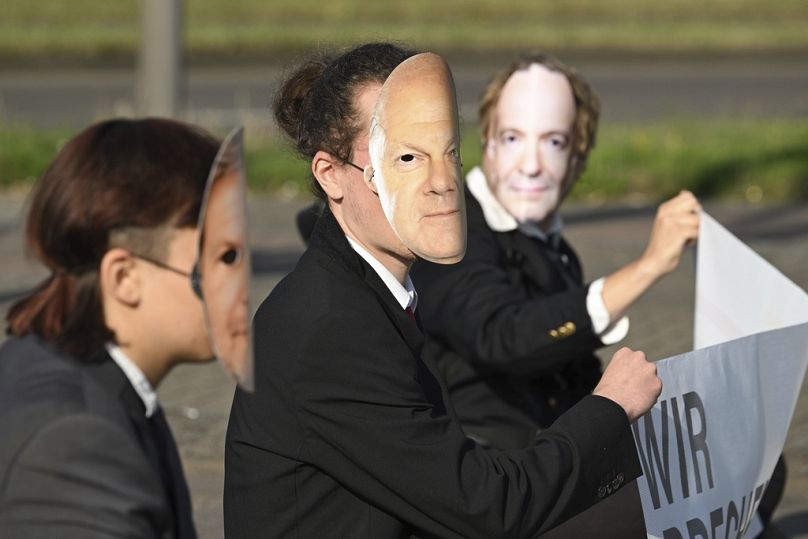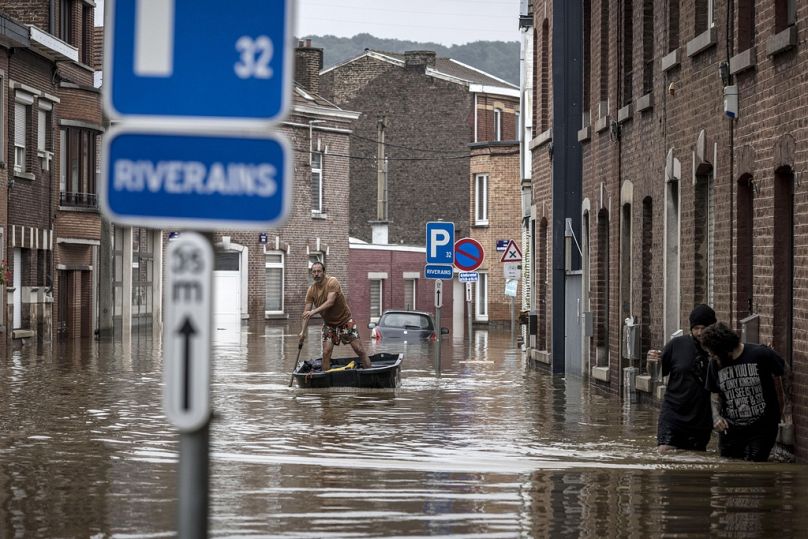These are measures that the European Union must immediately put in place in order to build a sustainable society for 2040 – and put a stop to harmful emissions, MEP Emma Wiesner writes.
The EU must continue to take its global responsibility to cut emissions.
When the European Commission starts work on our 2040 climate targets, we must put targets in place in line with the long-term goal of climate neutrality and policy in line with the 1.5C-degree target.
To achieve this, we need to expand the Emissions Trading System (ETS) and put price tags on emissions from more sectors.
On top of this, a large piece is missing in the EU climate policy toolbox: it is time we made it easier for consumers to distinguish between products made from fossil materials and products made from renewable materials.
The bottom line is, the EU should phase out fossil contents from all goods.
What are we missing in our thinking?
Today, the EU ETS has a huge impact on CO2 emitted directly into the atmosphere, but products based on fossil material still don’t.
We should put up a market fee or a quota system for fossil material in products by 2040, and the EU must make sure that all products that add to the consumption-based emissions in Europe are labelled with their carbon footprint.
To this end, all electricity sold and produced in the EU must be transparently marked. Guarantees of origin in real-time and clear information about carbon footprint must therefore be the European standard for electricity.
The science is clear: to reach our global climate targets, we have to both cut emissions and create technology to capture and store greenhouse gases from the atmosphere.
The EU needs new policies to quickly stimulate the creation of carbon sinks and large-scale capturing of atmospheric and biogenic CO2.
For this technology to develop fast enough, we need financial instruments and models that can help with the transition.
This is what the European Commission should do
After Russia's full-scale invasion of Ukraine in 2022, it is clear to everyone that fossil energy has played its role. Let us work to really put it behind us.
In order to create a faster transition to green energy, we need steady cooperation that will ensure energy security and increase investments in renewable energy.
EU policies for a real energy union must be strengthened.
Additionally, biogas will have to play a key role in breaking our dependence on fossil energy, increasing energy security and circularity, and ensuring the sustainability and competition of the agricultural sector.
As the European Commission is planning ahead for the 2040 climate goals, I have sent these concrete ideas to them on how to step up the EU’s climate action.
First of all, we need a new EU climate target for 2040 where the emissions will be cut by 95% compared to 1990. To aid that process, there should be a market fee or quota system for fossil inputs in products and compulsory labelling of the carbon print of all products sold on the EU single market.
We should also expand the EU ETS, as soon as possible, to include emissions from the transport, housing and waste sectors, and other sectors, and that free allowances are completely phased out.
Furthermore, every member state must start paying their carbon debt and be given a technical carbon removal target for 2040 based on the country’s accumulated emissions into the atmosphere between 1890 and 1990.
A common auctioning system should be set up, separate from the ETS, where private actors and member states can buy and sell carbon removals to reach their targets.
More instruments in the Common Agriculture Policy are needed to increase carbon farming and to incentivise further climate action for the agricultural sector.
We also need to create a market for private actors to finance carbon farming within the farming and forestry sectors.
The European Union is an action union
To help increase renewables, we need a complete ban on fossil fuels in energy production by 2040, as well as an increase in targets for EU energy cooperation from 15% to 25%.
We should also double the budget for the Trans-European Networks for Energy (TEN-E) to facilitate grid connection across the EU and implement mandatory labels with guarantees of origin and carbon footprint for all electricity produced and sold in the EU.
Finally, 75% of the manure in the EU should be used to create a competitive production of biogas by 2035 and 100% by 2040.
This should be accompanied by an EU strategy for biogas, including measures to stimulate domestic production, distribution, financing, and taxation.
The European Union is a climate union, an energy union, and an action union. We must foster a culture of cooperation where we get things done — for a better union and a better world.
Emma Wiesner (Renew Europe) is a Member of the European Parliament (MEP).
At Euronews, we believe all views matter. Contact us at view@euronews.com to send pitches or submissions and be part of the conversation.














